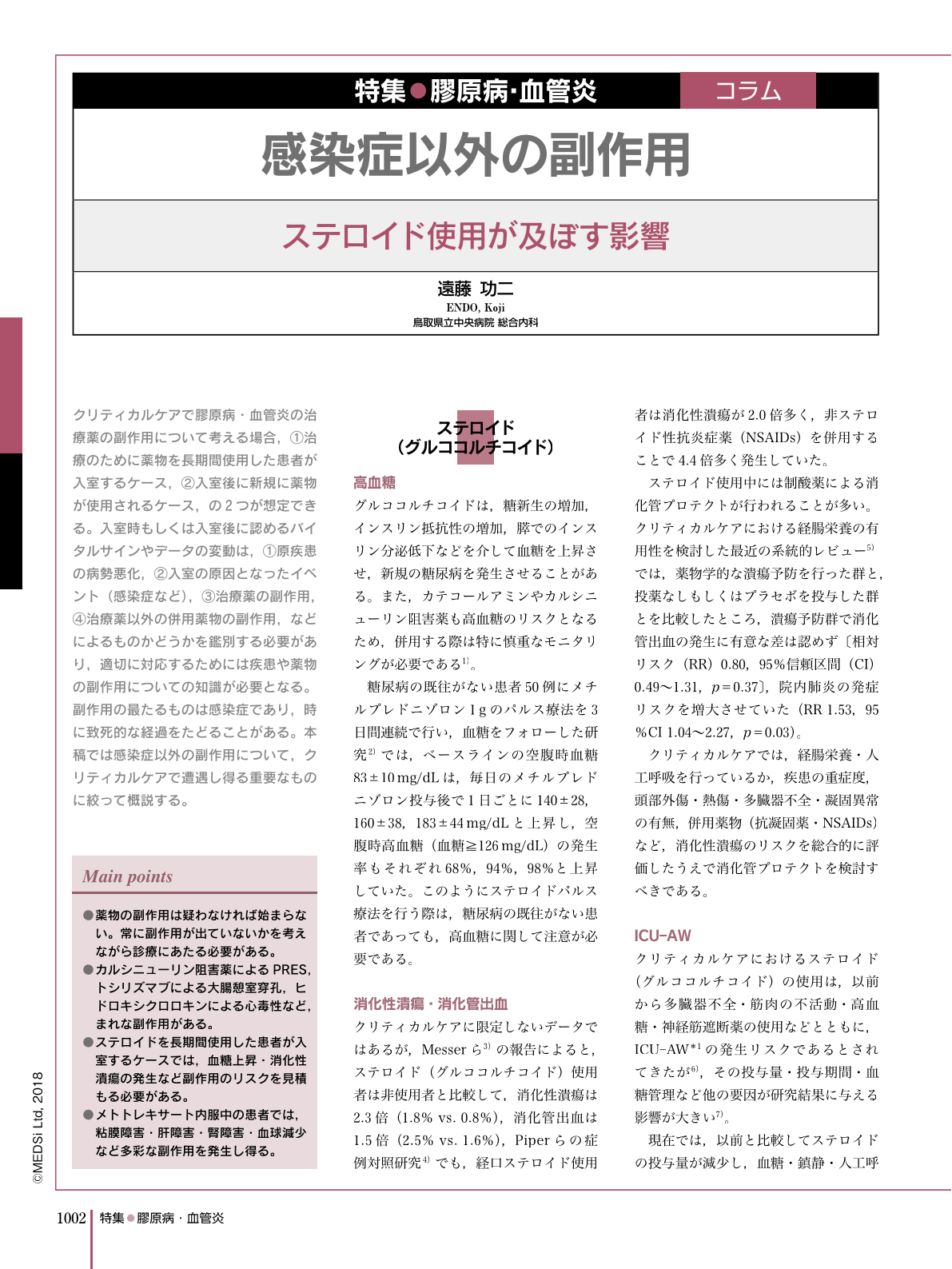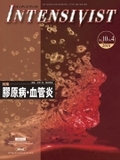Japanese
English
- 有料閲覧
- Abstract 文献概要
- 1ページ目 Look Inside
- 参考文献 Reference
クリティカルケアで膠原病・血管炎の治療薬の副作用について考える場合,①治療のために薬物を長期間使用した患者が入室するケース,②入室後に新規に薬物が使用されるケース,の2つが想定できる。入室時もしくは入室後に認めるバイタルサインやデータの変動は,①原疾患の病勢悪化,②入室の原因となったイベント(感染症など),③治療薬の副作用,④治療薬以外の併用薬物の副作用,などによるものかどうかを鑑別する必要があり,適切に対応するためには疾患や薬物の副作用についての知識が必要となる。副作用の最たるものは感染症であり,時に致死的な経過をたどることがある。本稿では感染症以外の副作用について,クリティカルケアで遭遇し得る重要なものに絞って概説する。
Main points
●薬物の副作用は疑わなければ始まらない。常に副作用が出ていないかを考えながら診療にあたる必要がある。
●カルシニューリン阻害薬によるPRES,トシリズマブによる大腸憩室穿孔,ヒドロキシクロロキンによる心毒性など,まれな副作用がある。
●ステロイドを長期間使用した患者が入室するケースでは,血糖上昇・消化性潰瘍の発生など副作用のリスクを見積もる必要がある。
●メトトレキサート内服中の患者では,粘膜障害・肝障害・腎障害・血球減少など多彩な副作用を発生し得る。
Various drugs such as corticosteroids, immunosuppressants, antimalarials, and biological agents are used for the treatment of patients with collagen diseases and systemic vasculitis. Many of the serious adverse effects in the ICU are infectious diseases with a potentially lethal course. It is necessary to properly interpret and manage changes in patient's vital signs and laboratory data that develop upon or after entering the ICU. The ICU staff should have a knowledge of the diseases and side effects of the drugs to treat them. In this section, we describe the side effects of these drugs other than infectious diseases encountered in the ICU.

Copyright © 2018, MEDICAL SCIENCES INTERNATIONAL, LTD. All rights reserved.


